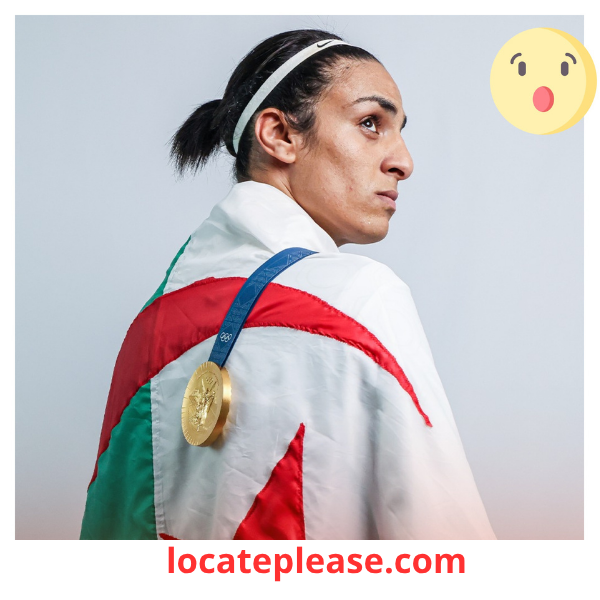The International Olympic Committee (IOC) has officially weighed in on the ongoing controversy surrounding Algerian boxer Imane Khelif and her gold medal win at the 2024 Paris Olympics. The decision comes amid mounting calls from the International Boxing Association (IBA) for Khelif to return the medal she won in the women’s 66kg boxing event. While tensions between the IOC and IBA have simmered for years, this latest development underscores the broader debate over fairness, eligibility, and inclusivity in women’s sports.
The Controversy Surrounding Imane Khelif
Imane Khelif emerged victorious in the 66kg women’s boxing category at the Paris Games last summer, securing a historic gold medal for Algeria. However, her win quickly became embroiled in controversy when the IBA questioned her eligibility to compete in the women’s division. Critics pointed to claims that Khelif possesses a difference of sex development (DSD), which some argue could provide an unfair competitive advantage.
The IBA, led by its outspoken president Umar Kremlev, has been vocal in challenging the legitimacy of Khelif’s victory. In a recent interview with Mail Sport , Kremlev accused the IOC of prioritizing political interests over fairness in sport. He specifically called for Khelif to “return the Olympic medal from Paris,” arguing that her participation violated principles of equity in competition.
IOC’s Verdict: Moving Forward, Not Backward
In her first press conference as the newly appointed IOC president, Kirsty Coventry addressed the controversy head-on—albeit indirectly. Taking over from former president Thomas Bach, Coventry emphasized that the IOC would not revisit past results or demand retrospective action regarding Khelif’s gold medal.
“We are not going to be doing anything retrospectively,” Coventry stated during the press conference. “We are going to be looking forward. From the members that were here, it was ‘what are we learning from the past and how are we going to leverage that and move that forward to the future.'”
This statement effectively rules out any possibility of Khelif being asked to relinquish her medal. Instead, Coventry signaled a focus on implementing new policies designed to address eligibility concerns moving forward—an approach aimed at balancing fairness with inclusivity.
New Policies for Future Competitions
As part of these efforts, the IOC announced plans to introduce stricter guidelines governing transgender and DSD athletes’ participation in female categories at future Olympic Games. Under the proposed framework, mandatory gender testing will likely become standard practice, requiring athletes like Khelif to undergo evaluations to confirm their biological eligibility for women’s competitions.
While these measures won’t retroactively affect previous events, they mark a significant shift in how the IOC intends to navigate complex issues surrounding gender identity and athletic fairness. For Khelif, this means she would need to pass such tests if she wishes to compete in upcoming tournaments.
Khelif’s Silence Amidst the Storm
Despite the growing scrutiny, Khelif herself has remained largely silent on the matter. She was expected to make her competitive return earlier this month at an event in the Netherlands but did not participate. No official explanation has been provided for her absence, leaving fans and critics alike speculating about her next steps.
The Bigger Picture: Fairness vs. Inclusivity
At its core, the debate over Khelif’s gold medal reflects a larger struggle within the world of sports: how to balance inclusivity with fairness. On one side, advocates argue that all athletes deserve the opportunity to compete based on their identified gender, emphasizing the importance of representation and acceptance. On the other, critics contend that biological differences can create imbalances that undermine the spirit of fair competition.
The rift between the IOC and IBA exemplifies this tension. Since suspending its recognition of the IBA in June 2023, the IOC has sought to assert greater control over boxing governance—a move widely seen as a response to the IBA’s controversial stances on athlete eligibility. Earlier this year, the IOC recognized World Boxing as the sport’s official governing body, further solidifying its authority in shaping policy.
What’s Next for Women’s Boxing?
With mandatory gender testing on the horizon, the landscape of women’s boxing is poised for significant change. Athletes competing in future events will face increased scrutiny, raising questions about privacy, ethics, and the potential impact on mental health.
For now, however, Imane Khelif’s gold medal remains hers to keep—a symbol of triumph amidst turmoil. As the IOC looks to chart a path forward, the global sporting community waits to see whether these new measures will foster greater unity or deepen existing divides.
In the meantime, Coventry’s leadership offers a glimpse of hope for progress. By focusing on lessons learned and leveraging them to shape the future, the IOC aims to uphold the integrity of competition while honoring the values of diversity and inclusion. Whether this delicate balance can be achieved remains to be seen—but one thing is certain: the conversation around fairness in sport is far from over.






